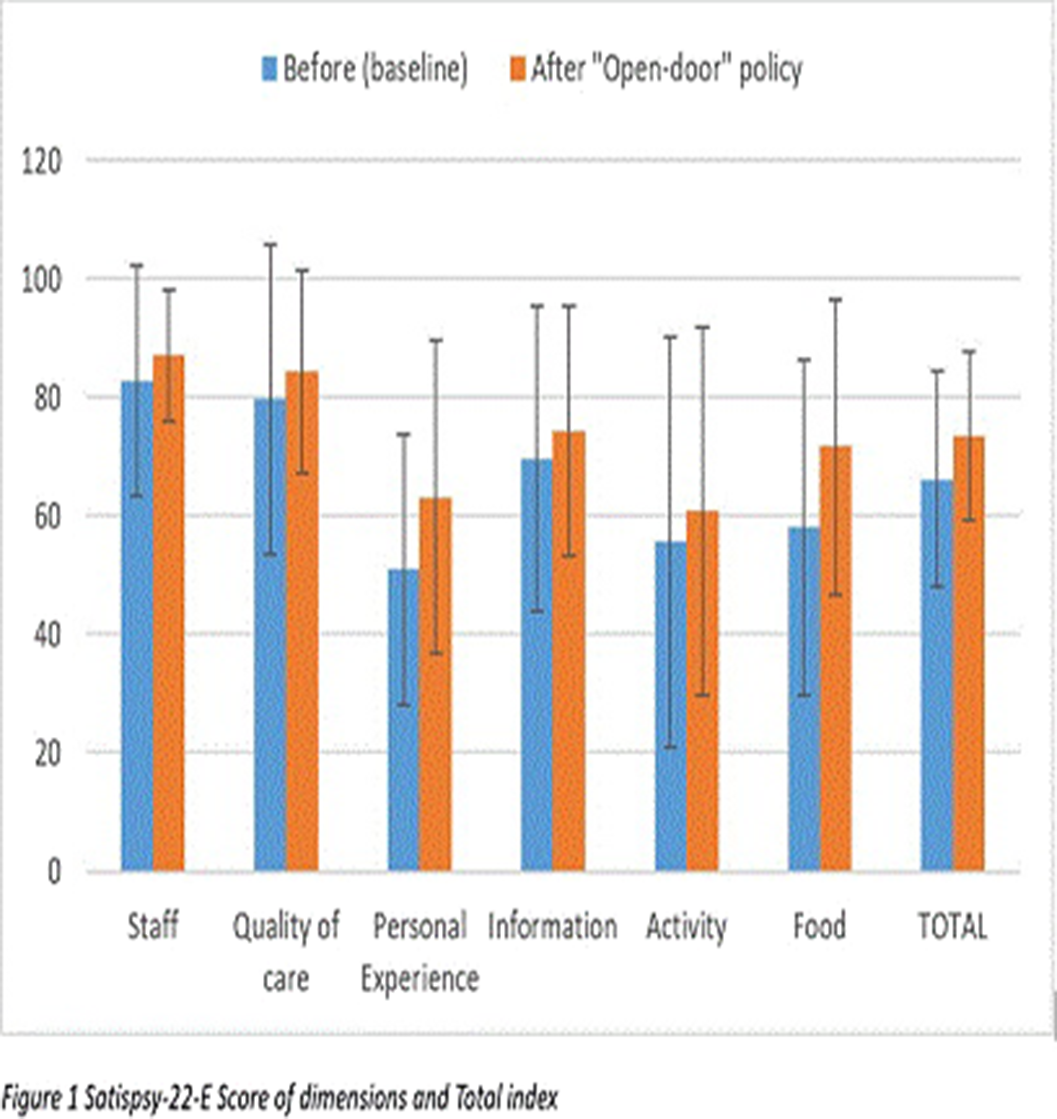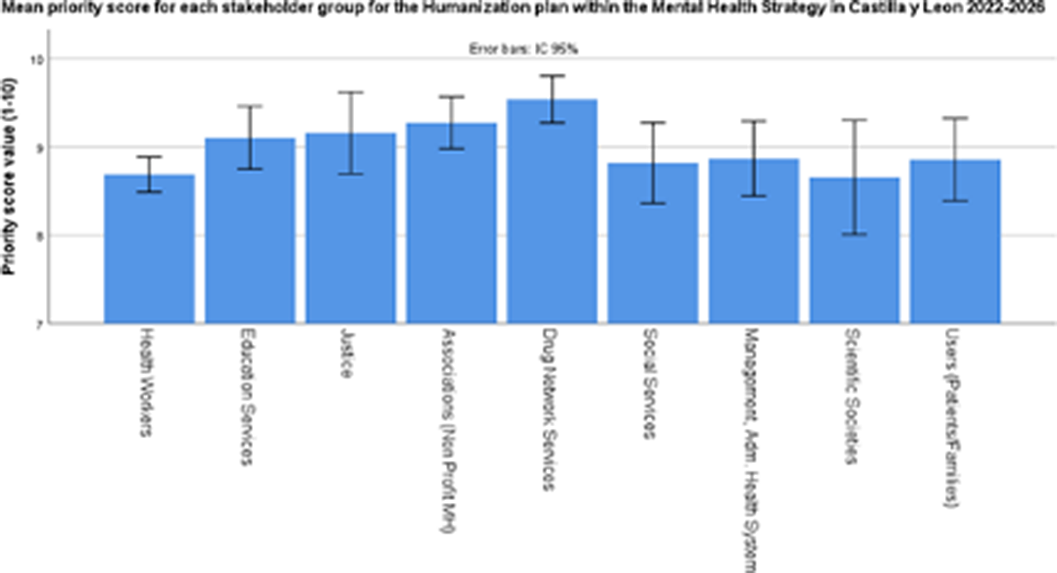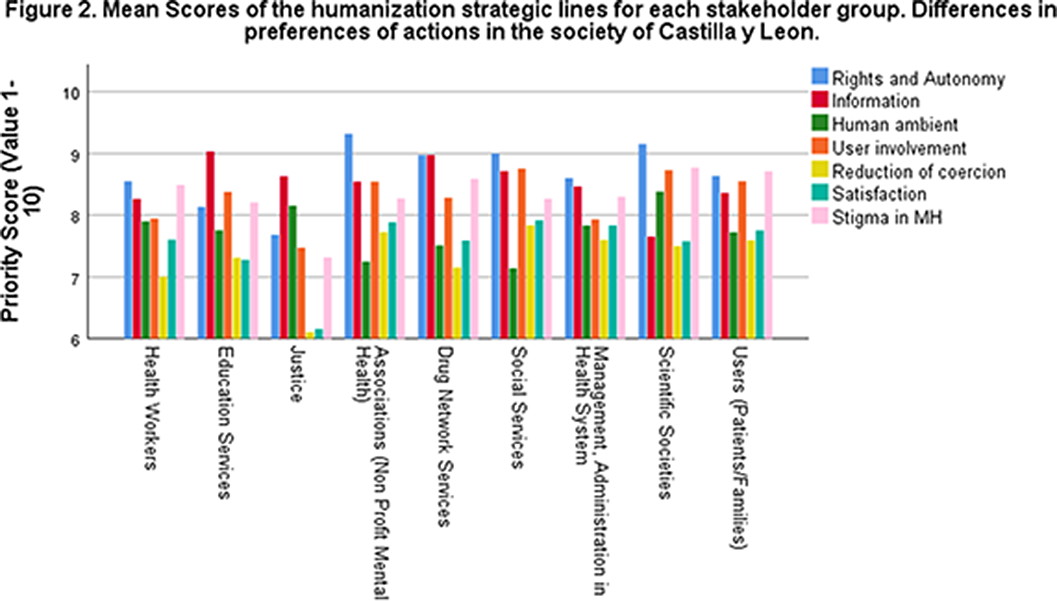e-Poster Viewing
Abstract
MULTIDISCIPLINARY COLLABORATION AS A IMPROVEMENT IN PROVIDING QUALITY USER-ORIENTED SERVICES
-
- Published online by Cambridge University Press:
- 19 July 2023, p. S900
-
- Article
-
- You have access
- Open access
- Export citation
Difficult patients in mental health care–who are they?
-
- Published online by Cambridge University Press:
- 19 July 2023, p. S900
-
- Article
-
- You have access
- Open access
- Export citation
INTIMATE PSYCOLOGICAL VIOLENCE ASSOCIATED WITH ALCOHOL USE
-
- Published online by Cambridge University Press:
- 19 July 2023, p. S901
-
- Article
-
- You have access
- Open access
- Export citation
Characteristics of patients admitted to a Psychiatric Home Hospitalization Unit and burden felt by caregivers
-
- Published online by Cambridge University Press:
- 19 July 2023, p. S901
-
- Article
-
- You have access
- Open access
- Export citation
Virtual Reality in the acute psychiatry ward: a pilot study
-
- Published online by Cambridge University Press:
- 19 July 2023, pp. S901-S902
-
- Article
-
- You have access
- Open access
- Export citation
Nature-Based Mental Health - what kind of interventions is the best?
-
- Published online by Cambridge University Press:
- 19 July 2023, p. S902
-
- Article
-
- You have access
- Open access
- Export citation
Music therapy in psychiatric units: evaluating its effectiveness
-
- Published online by Cambridge University Press:
- 19 July 2023, pp. S902-S903
-
- Article
-
- You have access
- Open access
- Export citation
Patient satisfaction in an “open-door” acute inpatient psychiatric unit
-
- Published online by Cambridge University Press:
- 19 July 2023, p. S903
-
- Article
-
- You have access
- Open access
- Export citation
Seeing voices? The importance of raising awareness on Deaf Mental Health
-
- Published online by Cambridge University Press:
- 19 July 2023, p. S904
-
- Article
-
- You have access
- Open access
- Export citation
Brief intervervention for a metabolic syndrome in psychiatric outpatients with severe/persistent mental illness: A prospective study
-
- Published online by Cambridge University Press:
- 19 July 2023, p. S904
-
- Article
-
- You have access
- Open access
- Export citation
Development and testing of a Shared decision making ExpeRience in mENtal hEalth (SERENE) measure
-
- Published online by Cambridge University Press:
- 19 July 2023, pp. S904-S905
-
- Article
-
- You have access
- Open access
- Export citation
The relationship between psychiatric symtoms and childhood trauma
-
- Published online by Cambridge University Press:
- 19 July 2023, p. S905
-
- Article
-
- You have access
- Open access
- Export citation
Mental health evaluation in senior year medical students
-
- Published online by Cambridge University Press:
- 19 July 2023, p. S905
-
- Article
-
- You have access
- Open access
- Export citation
Psychosocial and Physical Rehabilitation of Burn Survivors: A large multicentre cluster randomised controlled trial from Pakistan
-
- Published online by Cambridge University Press:
- 19 July 2023, p. S906
-
- Article
-
- You have access
- Open access
- Export citation
Social-Stress Disorder and Post-Traumatic Stress Disorder in Ukrainian Population.
-
- Published online by Cambridge University Press:
- 19 July 2023, p. S906
-
- Article
-
- You have access
- Open access
- Export citation
Stressful events among adolescents from public schools in a community in Brazil
-
- Published online by Cambridge University Press:
- 19 July 2023, p. S907
-
- Article
-
- You have access
- Open access
- Export citation
Role of Body Mass Index on Perceived Stress in Medical Students
-
- Published online by Cambridge University Press:
- 19 July 2023, p. S907
-
- Article
-
- You have access
- Open access
- Export citation
Impact of multiple sclerosis on mental health: A Cross-Sectional Study
-
- Published online by Cambridge University Press:
- 19 July 2023, p. S908
-
- Article
-
- You have access
- Open access
- Export citation
Increased violence and aggression levels during the SARS-Cov-2 pandemic; data from three London acute psychiatric inpatient facilities.
-
- Published online by Cambridge University Press:
- 19 July 2023, p. S908
-
- Article
-
- You have access
- Open access
- Export citation
A social consensus to prioritize humanization strategies for Mental Health in Castilla y León
-
- Published online by Cambridge University Press:
- 19 July 2023, pp. S908-S909
-
- Article
-
- You have access
- Open access
- Export citation




